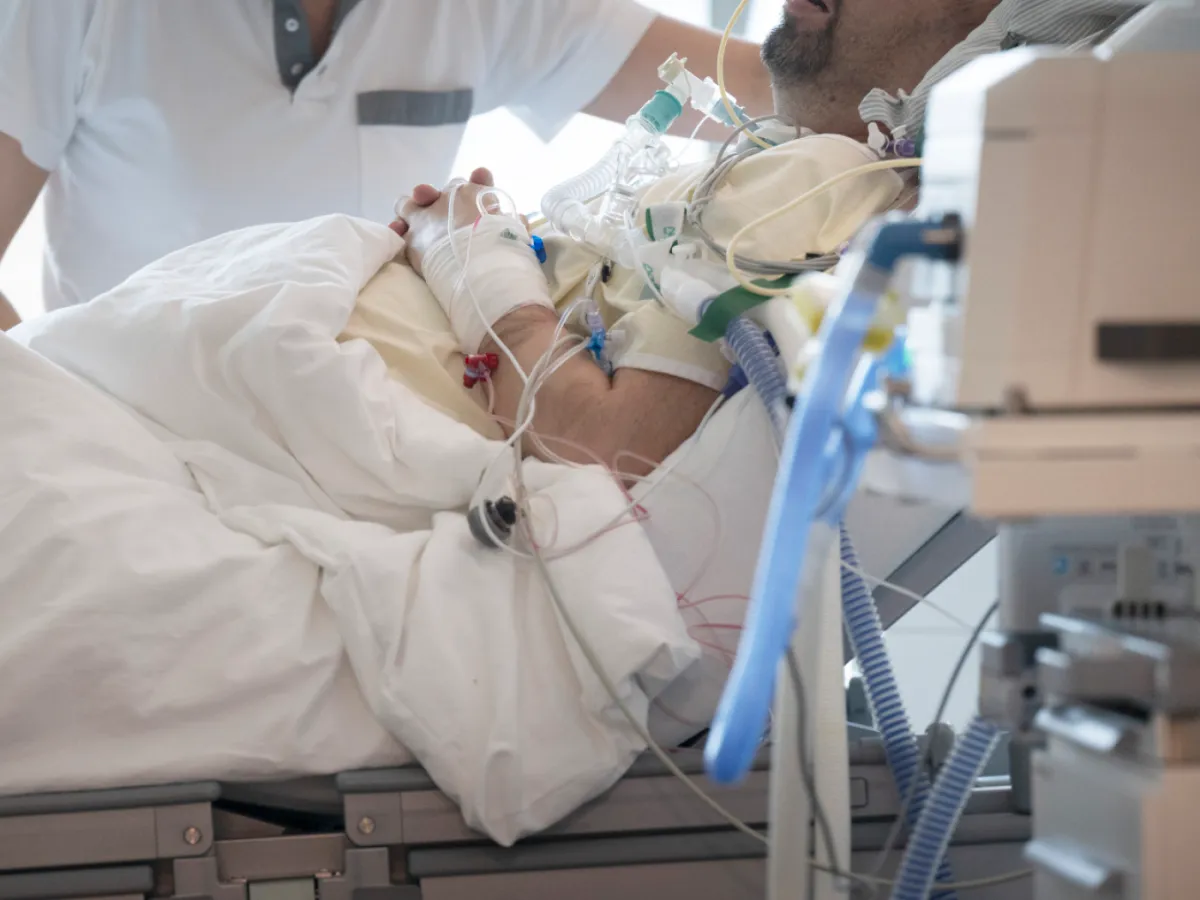
Risk Of Sepsis Is Underestimated In Switzerland, Warn Experts
-
Deutsch
de
Sepsis-Gefahr wird laut Fachleuten in der Schweiz unterschätzt
Original
Read more: Sepsis-Gefahr wird laut Fachleuten in der Schweiz unterschätz
The Swiss Sepsis Programme (SSP) and the Swiss Federal Quality Commission (EQK) announced on Thursday that sepsis, which is often referred to colloquially as blood poisoning, is therefore just as serious and frequent a medical emergency as a stroke or heart attack. Around 2,500 people die from strokes and heart attacks in Switzerland every year.
+Get the most important news from Switzerland in your inbox
“The danger of sepsis is still underestimated,” said Nora Lüthi, lead author of the SSP report, in the press release.
The number of sepsis deaths has remained largely unchanged in recent years despite advanced care. All age groups are affected, but especially infants and the elderly.
High costsAround 40% of hospital cases with a sepsis diagnosis are treated in an intensive care unit. According to the report, the average cost of treating a sepsis case is around CHF50,000. This means that Swiss sepsis cases cost over one billion Swiss francs per year, according to the report.
If the costs of rehabilitation, follow-up care and the treatment of long-term complications are extrapolated over the following three years, the direct costs in Switzerland are estimated to double, i.e. to CHF2 billion per year, the report continued.
The Swiss Sepsis Program is the joint initiative of the University Children's Hospital Zurich, the University Hospitals of Bern (Inselspital) and Vaud (CHUV). It is financed by the Federal Quality Commission for the Healthcare System.
Hygiene and early diagnosisSepsis is commonly referred to as blood poisoning. However, this term is not medically correct, as the blood is not“poisoned”. Instead, germs spread through the blood vessels in the body. In principle, any infection can develop into septicaemia.
The best way to prevent infections and thus septicaemia is through hygiene, as the University Hospital Zurich explains on its website. It is also important to recognise the first symptoms quickly and treat them in a targeted manner. Symptoms include sudden onset of confusion and drowsiness, low blood pressure and accelerated breathing.
Adapted from German by DeepL/ac
We select the most relevant news for an international audience and use automatic translation tools to translate them into English. A journalist then reviews the translation for clarity and accuracy before publication.
Providing you with automatically translated news gives us the time to write more in-depth articles. The news stories we select have been written and carefully fact-checked by an external editorial team from news agencies such as Bloomberg or Keystone.
If you have any questions about how we work, write to us at ...
Related Stories Popular Stories More International Geneva A Geneva-based global health foundation came close to 'collapse'. Where were regulators? Read more: A Geneva-based global health foundation came close to 'collapse'. Where were regulators?
Legal Disclaimer:
MENAFN provides the
information “as is” without warranty of any kind. We do not accept
any responsibility or liability for the accuracy, content, images,
videos, licenses, completeness, legality, or reliability of the information
contained in this article. If you have any complaints or copyright
issues related to this article, kindly contact the provider above.


















Comments
No comment